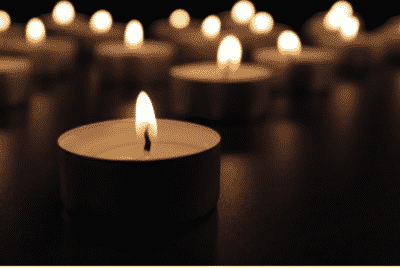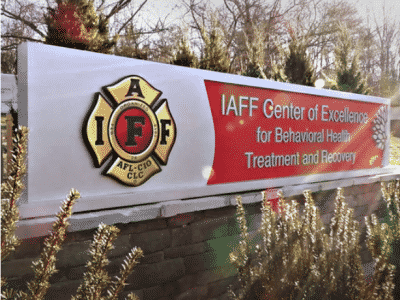Get the help you need right now 855-900-8437 Get Help Now
Get the help you need right now 855-900-8437 Get Help Now
April 24, 2020
The tradition of honoring the deceased by their family, community and nation is so deeply ingrained in the fire service culture that, for many, the grieving process cannot begin without it. As a society, we have developed many ways to honor people we’ve lost. Hosting a wake, viewing, funeral service, a celebration of life or Shiva are just some of the ways we honor our loved ones. In the fire service, witnessing a badge presentation or bagpipers are sacred rituals that help express what cannot be said in words.

While each practice has nuance, each of these traditions share some common goals that are essential to the grieving process:
Although it may seem impossible to achieve these goals without in-person gatherings, we must try. This means finding new ways to facilitate the grieving process. Every family, community, crew or department that has lost a loved one during the COVID-19 pandemic is faced with the same challenge. If you are among those who have lost someone you care about, consider how the person would have wanted you to honor their memory. Try these strategies to take care of yourself and facilitate the grieving process:
If you are struggling to process your grief and feel stuck, it may be time to ask for professional help. Telemental health services can be a great alternative to office- or facility-based counseling, especially during the era of COVID-19. See the IAFF Telemental Health Guide to learn more. For additional behavioral health COVID-19 resources, visit the behavioral health section of the IAFF COVID-19 website.
Another option for getting help is residential treatment. The IAFF Center of Excellence for Behavioral Treatment and Recovery is for IAFF members struggling with addiction, post-traumatic-stress disorder (PTSD) and other co-occurring mental health problems. The Center remains open to serve IAFF members, while continuously adapting patient screening, contact precautions and isolation protocols as recommended by the Centers for Disease Control and Prevention (CDC). For the latest updates, behavioral health resources and IAFF guidelines for responding to COVID-19, visit www.iaff.org/coronavirus.

Lauren Kosc, M.A., LCPC is a behavioral health specialist, clinician and blog writer for the International Association of Fire Fighters.